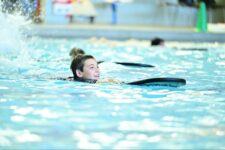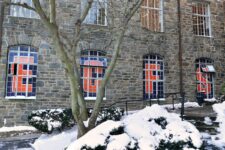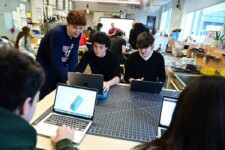At Ethical Culture Fieldston School, autumn calls for outdoor exploration, celebrating both the School’s belief in both collective rigor and play, and in the power of learning beyond the traditional classroom. This fall, students in each division embarked on experiential field trips that highlighted the value of hands-on experience and the importance of taking ownership of their learning as they mature.
Ethical Culture
Each fall, when Ethical Culture 5th Graders pack their bags for The Ashokan Center in Olivebridge, NY, they’re preparing not just for an overnight trip away from home, but for a meaningful learning experience with the potential to expand their understanding of thoughtful collaboration and problem-solving. Exploring outside the classroom gives students the opportunity to live out their learning — a central aspect of ECFS’S inquiry-based curriculum.
This year at Ashokan, 5th Graders found themselves navigating both the landscape and their friendships. They learned to lean on one another — sometimes quite literally — while scaling a rock wall or steadying a rope on the ropes course for a peer. “Almost every activity centers teamwork, empathy, and leadership,” shares Rebecca Oshins, Ethical Culture’s new Assistant Principal for Student Life. “From little moments like dining hall job assignments to bigger ones like conquering a fear to climb the rock wall, the trip is all about finding ways to lead and uplift one another.” Not to mention, these experiences encourage students to consider their own learning styles and strengths — skills that foster independence and resilience back in the classroom.
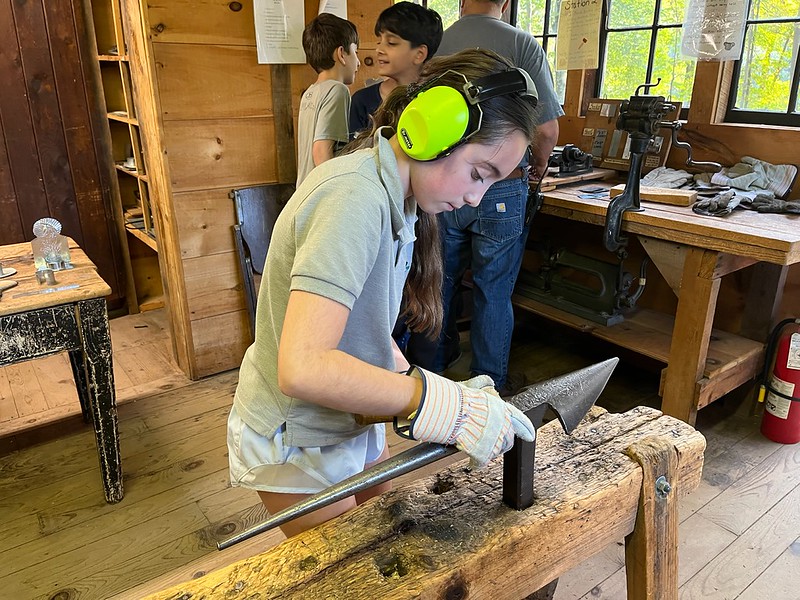
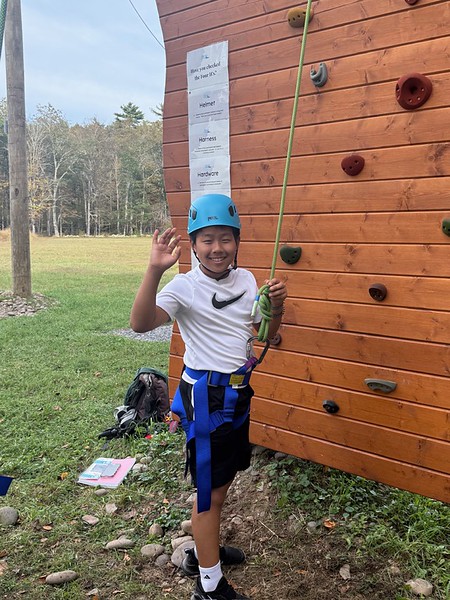
The trip also offers subtle but powerful lessons in sustainability that students can tie back to their classwork. Programs like the Zero Waste Challenge encourage students to reflect on their impact on the natural environment — a direct connection to their studies of ecology and sustainability in science class. Additionally, tracking food waste, measuring progress, and setting collective goals also brought math and data literacy skills into real-world focus.
What stood out this year, Oshins explains, was the way students worked together. “It was thrilling to see the kids being so supportive of each other,” she adds. “They are kind, warm, flexible to each other’s needs, and truly remarkable friends.”
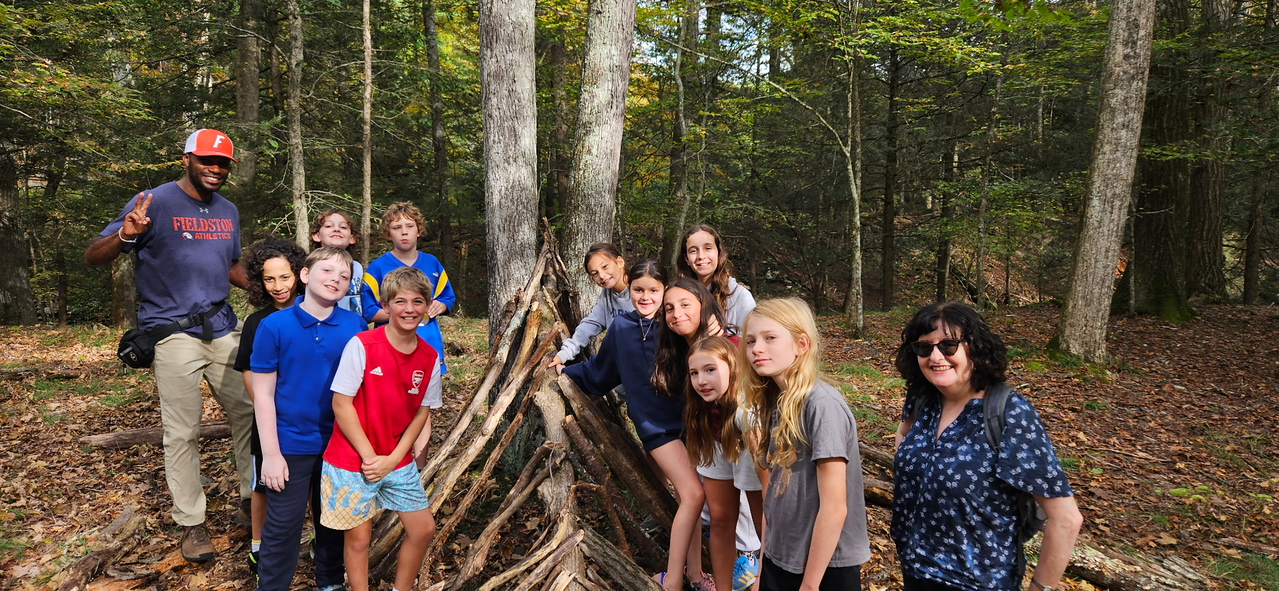
Fieldston Middle
About a month into their middle school experience, 6th Graders ventured to Camp Ramapo for Children in Rhinebeck, NY, for an overnight outdoor excursion. The trip featured activities that encouraged communication, self reflection, and social and emotional growth, with the overall goal of helping students connect with new friends and conquer both physical and interpersonal feats.
Whether they challenged themselves on a ropes course 30 feet in the air or learned how to make fire with peers, students discovered that the freedom of these outdoor tasks offered lessons relevant to their everyday lives.
“We did an activity called ‘Spiderweb,’ where there are ropes tied together in a way that makes it look like a web,” shares Harlan P. ’32. “You try to get everyone through to the other side without touching the ropes. It taught us about teamwork, and I think that is a great skill we should use in the classroom.”
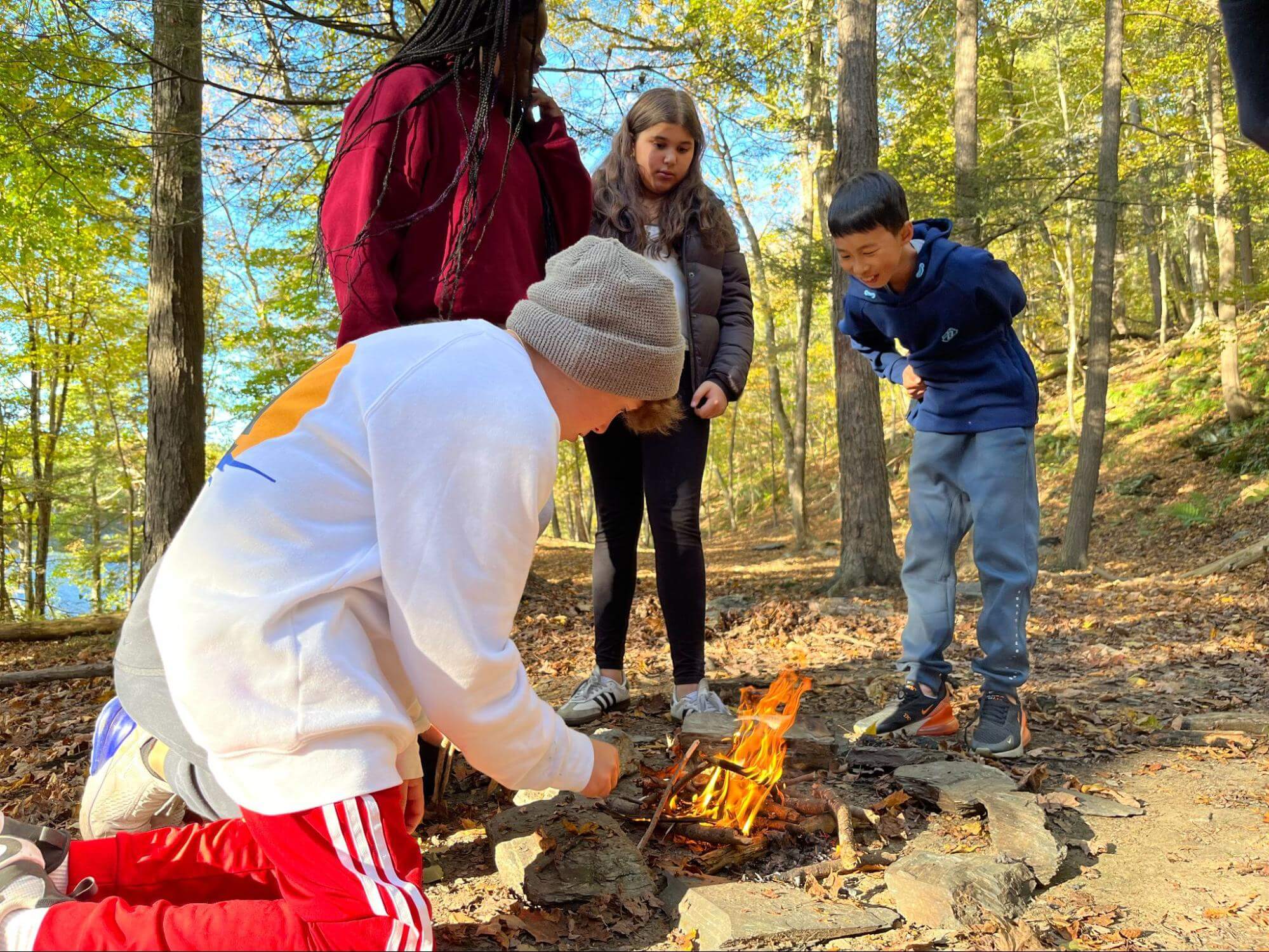
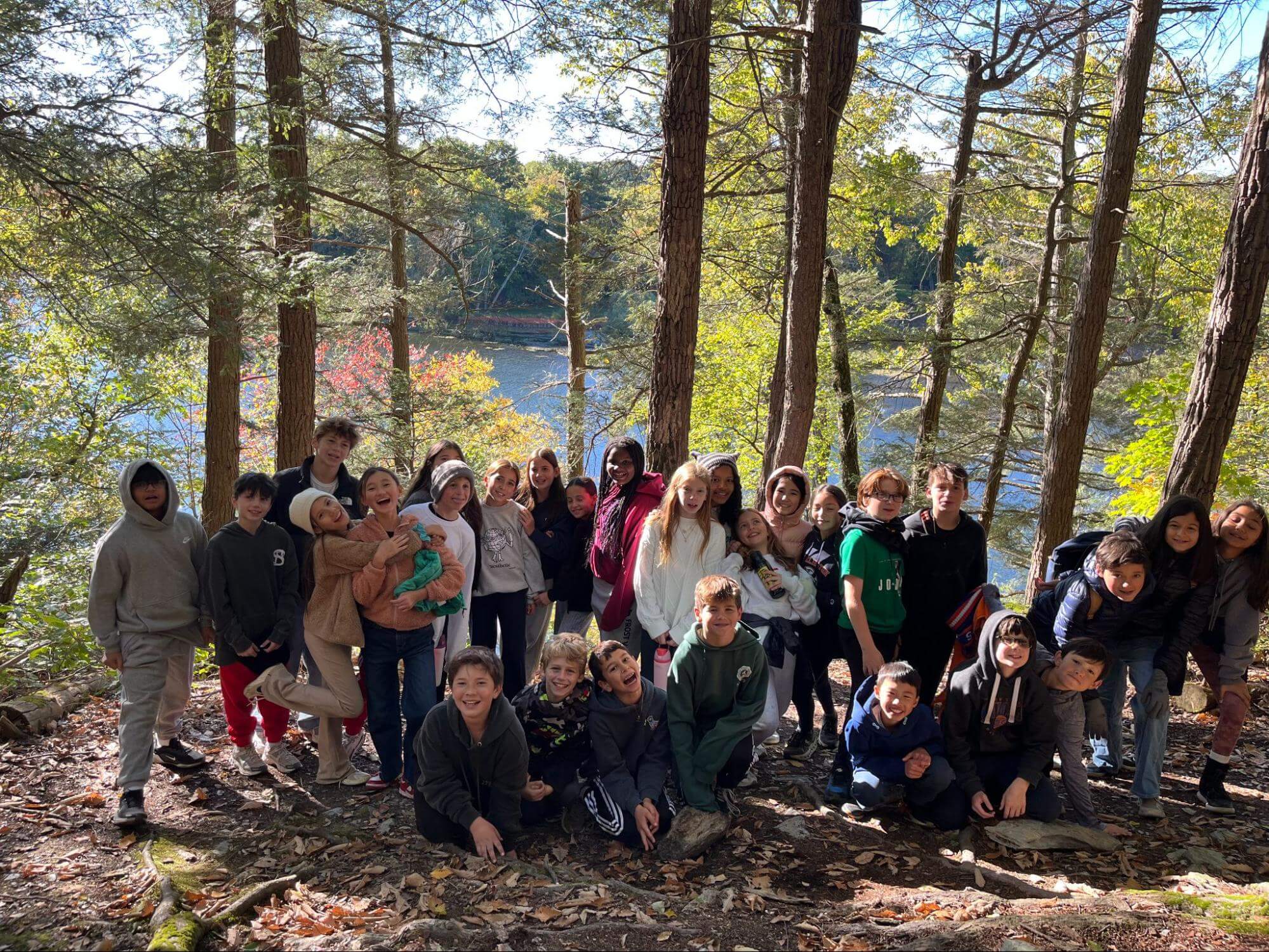
The physicality of tasks like the ropes courses helped the 6th Graders navigate feelings of success and failure in a non-competitive atmosphere. Additional activities included hikes and an “Iron Chef” cooking challenge. Students were also split into groups with the intent of pairing together people who might not have known each other before. With many students still getting to know new peers from Fieldston Lower, Ethical Culture, or another elementary school, a less structured setting allowed for friendships to spark organically and meaningfully.
“The trip activities promoted new friendships in several ways,” says Fieldston Middle Principal Jon Alschuler. “The low ropes activities were all team-oriented challenges, the high ropes elements really encouraged students to support one another to conquer their fears, and there were lots of little moments on the trip where kids built connections. Students helped each other to make their beds up and lent each other toiletries if a peer had forgotten something. Of the 82 students who completed a feedback survey, 79 reported making a new connection on the trip. That indicates it was a success!”
At ECFS, hands-on approaches to education are regularly incorporated into the curriculum. The Camp Ramapo trip reminded students that meaningful learning often happens when they take risks, do and feel, collaborate, and support one another along the way.
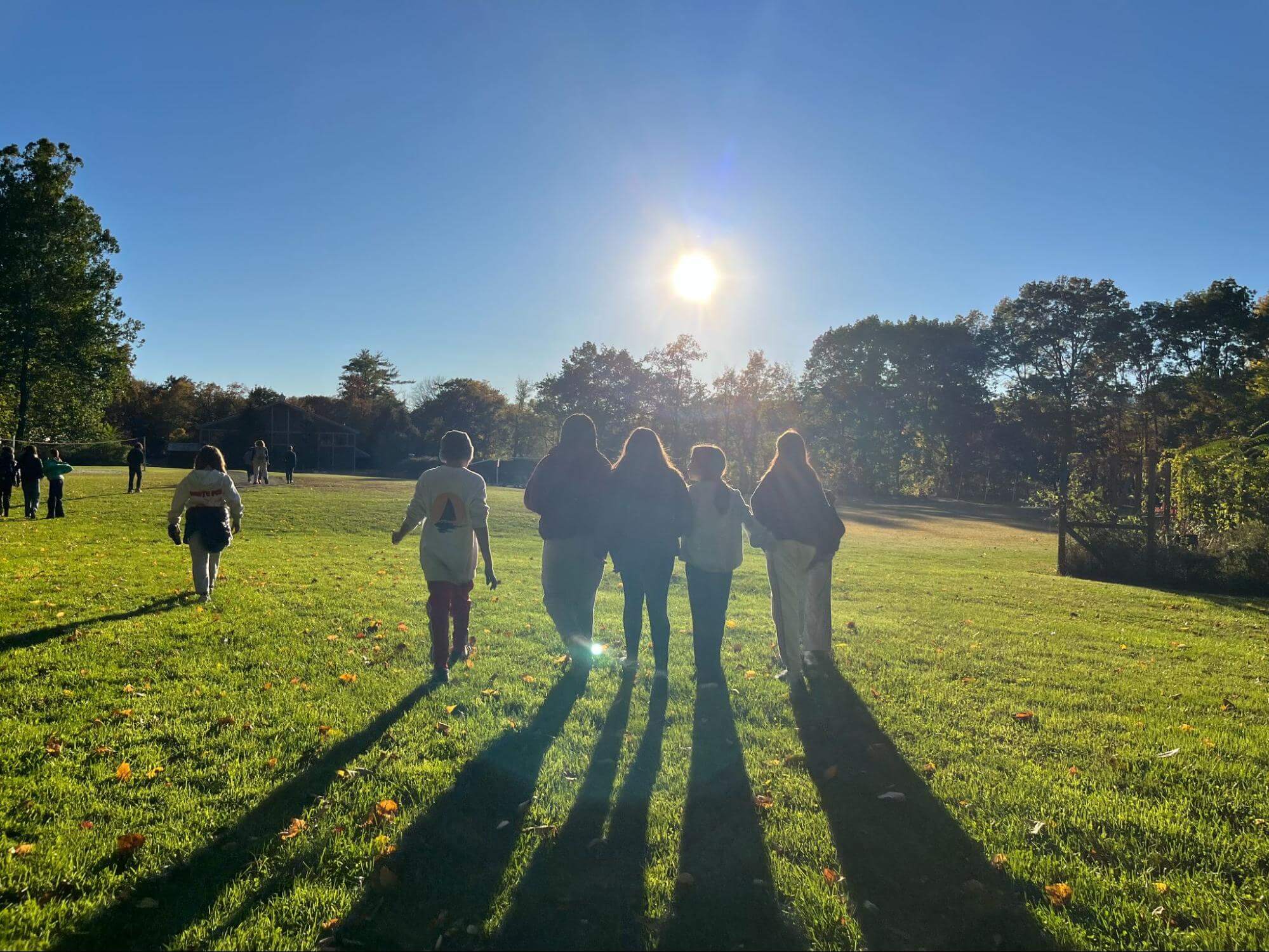
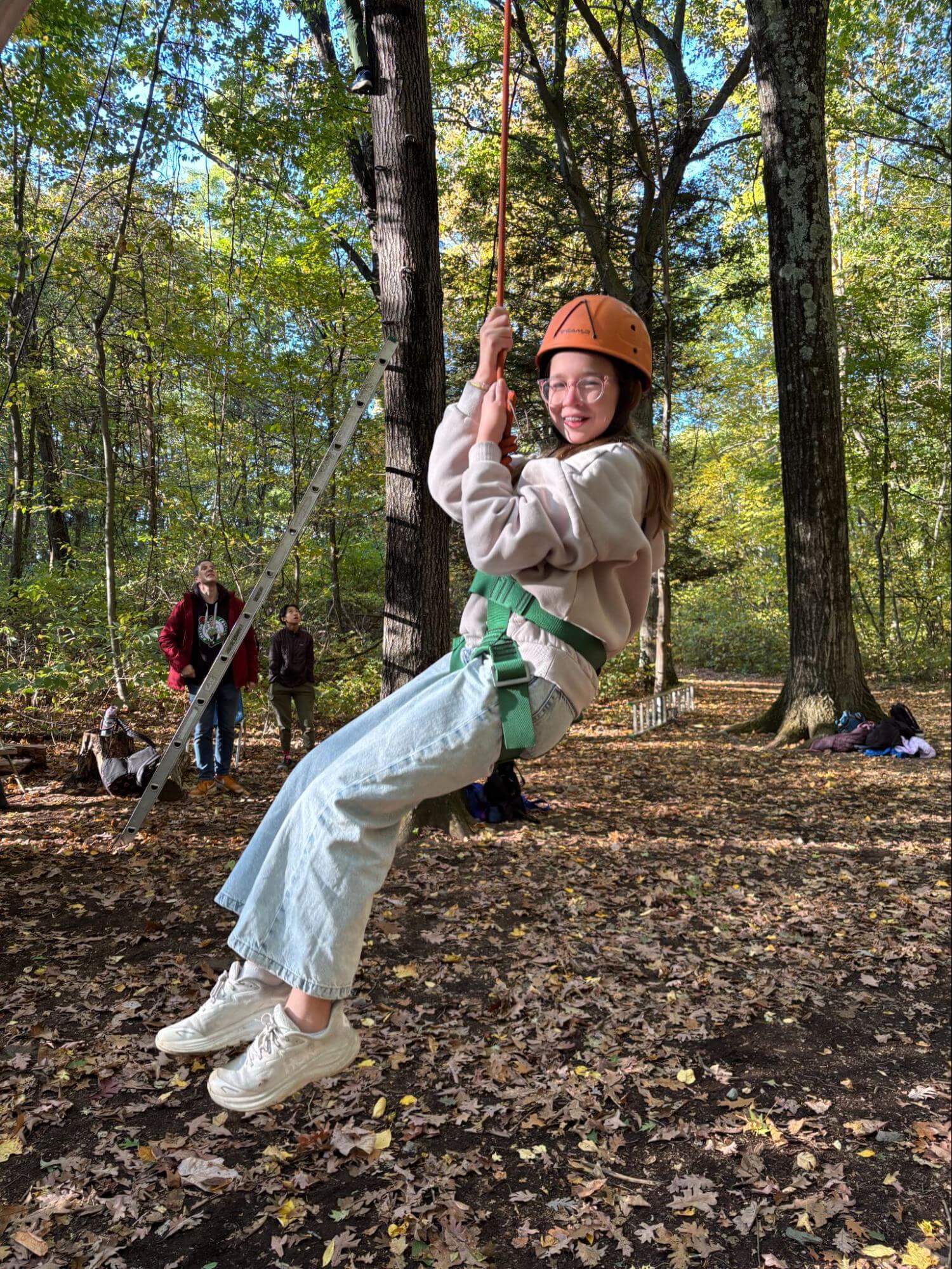
Fieldston Upper
Fieldston Upper 10th Graders traveled to the Greater Boston area to connect the figures, historical events, and movements they’ve studied in in English and history classes to the real world. Now midway through their high school careers, 10th Graders have developed a strong sense of ownership over their learning — a skill that came into play when doing their assignments in preparation for the Boston trip.
The students’ experiential work on this trip includes a study of Indigenous history at Connecticut’s Mashantucket Pequot Museum and Research Center, as well as English writing exercises related to Henry David Thoreau at Walden Pond in Concord, Massachusetts. In their history class’s exploration of the American Revolution, students were tasked with creating “a people’s history” of Boston, examining how race, class, gender, and/or sexuality shaped the city during the War of Independence and into the 19th century. Before the trip, students worked in groups to form creative responses to historical sites along the Freedom Trail and Black Heritage Trail.
“Exploring a people’s history of Boston was beneficial because I was able to better understand the different perspectives surrounding one place,” says Ava R. ’28, whose group performed a skit about a tour of the Lewis and Harriet Hayden House. “It was interesting to see how with just one event or location, there were so many stories relating to it that I had never heard. The creative response was also so much fun to come up with with my friends, and it helped me get excited about my location before going there.”
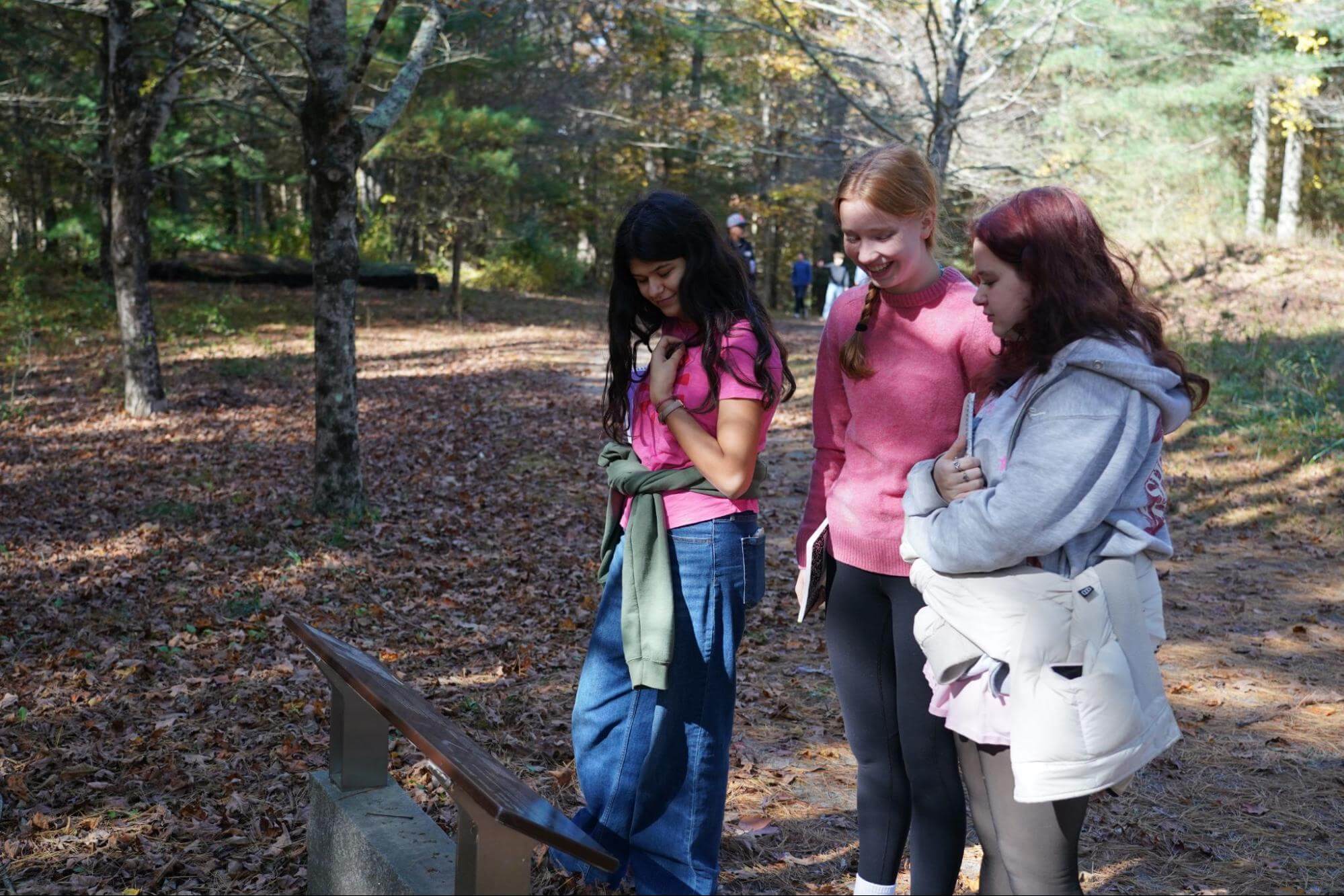
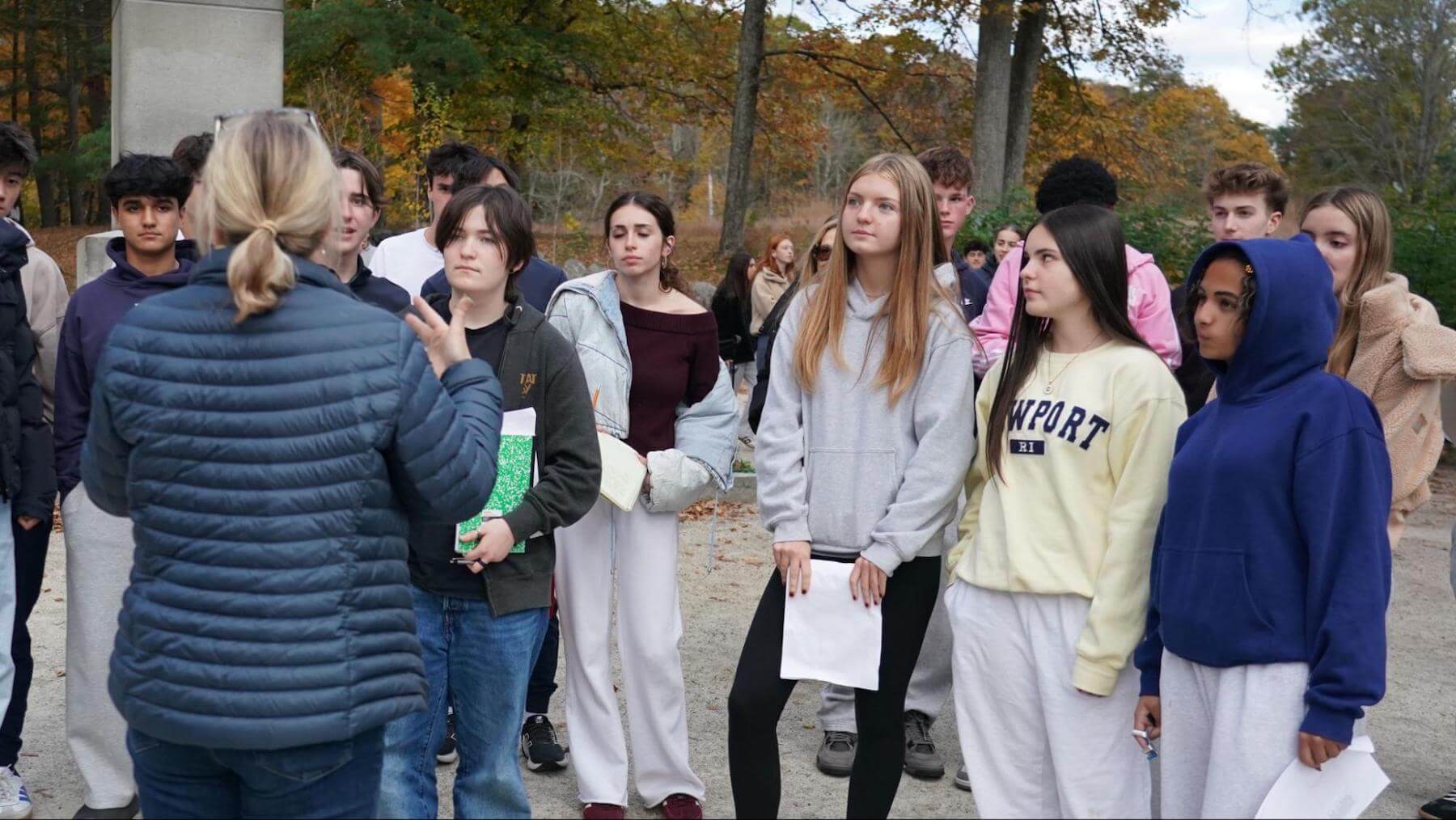
After their initial research, students aimed to answer how the notion of liberty or freedom connects to their specific site. “The history assignment had a lot of details to complete,” Ava says. “We gathered research, turned that research into a one-to-two page paper, cited our sources and footnoted them, made a creative aspect and wrote a description of it, and then wrote a paragraph about how our entire project connected to freedom, liberty, and a “people’s history.” We resolved this by dividing our work, and making sure to communicate well to work effectively.”
Groups presented their responses at their assigned landmarks throughout Boston, transforming into tour guides who shared both well-known and lesser-told stories. By applying history to these tangible places, 10th Graders discovered lessons that a classroom discussion may not provide, preparing them for a lifetime of interdisciplinary thinking and action.
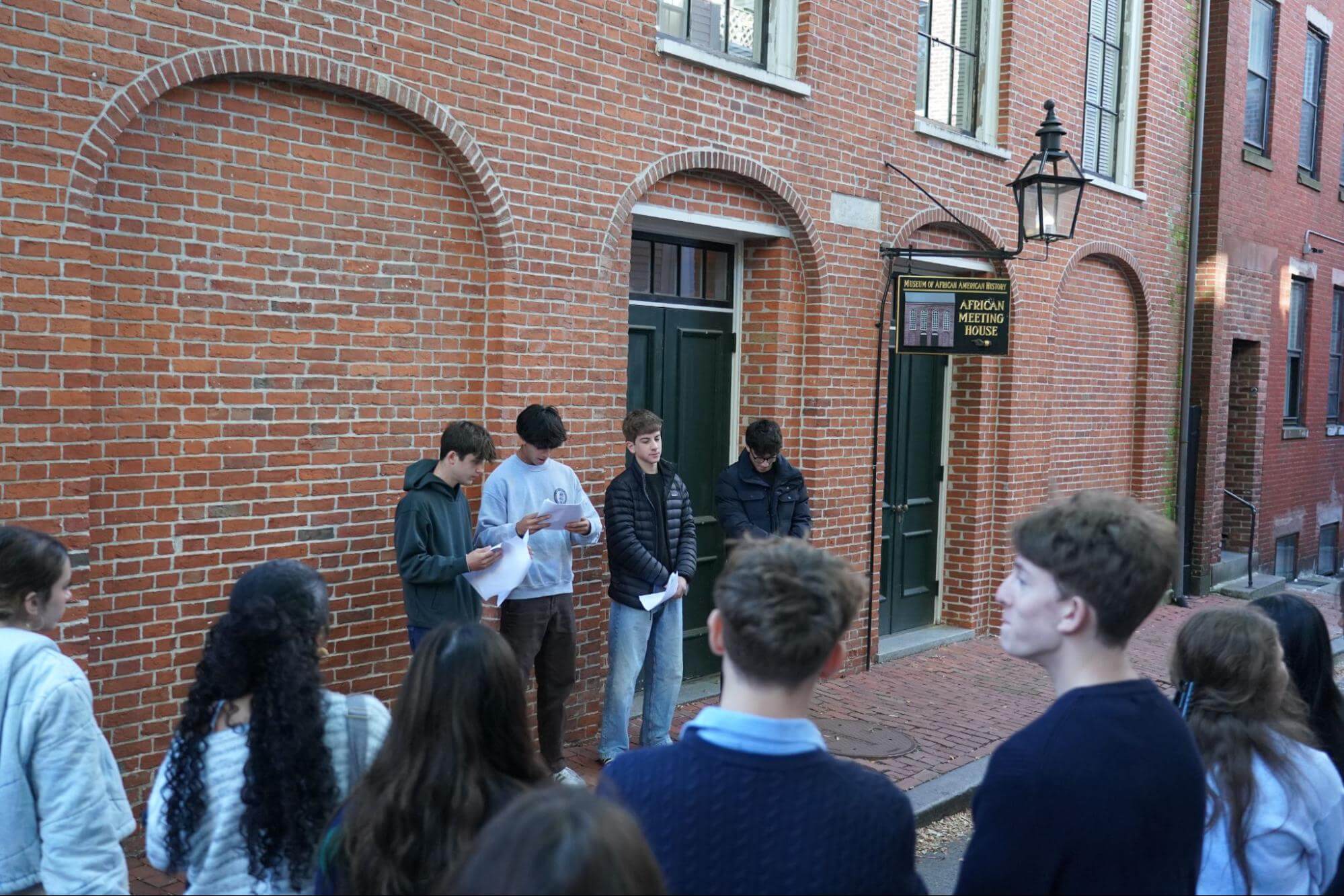
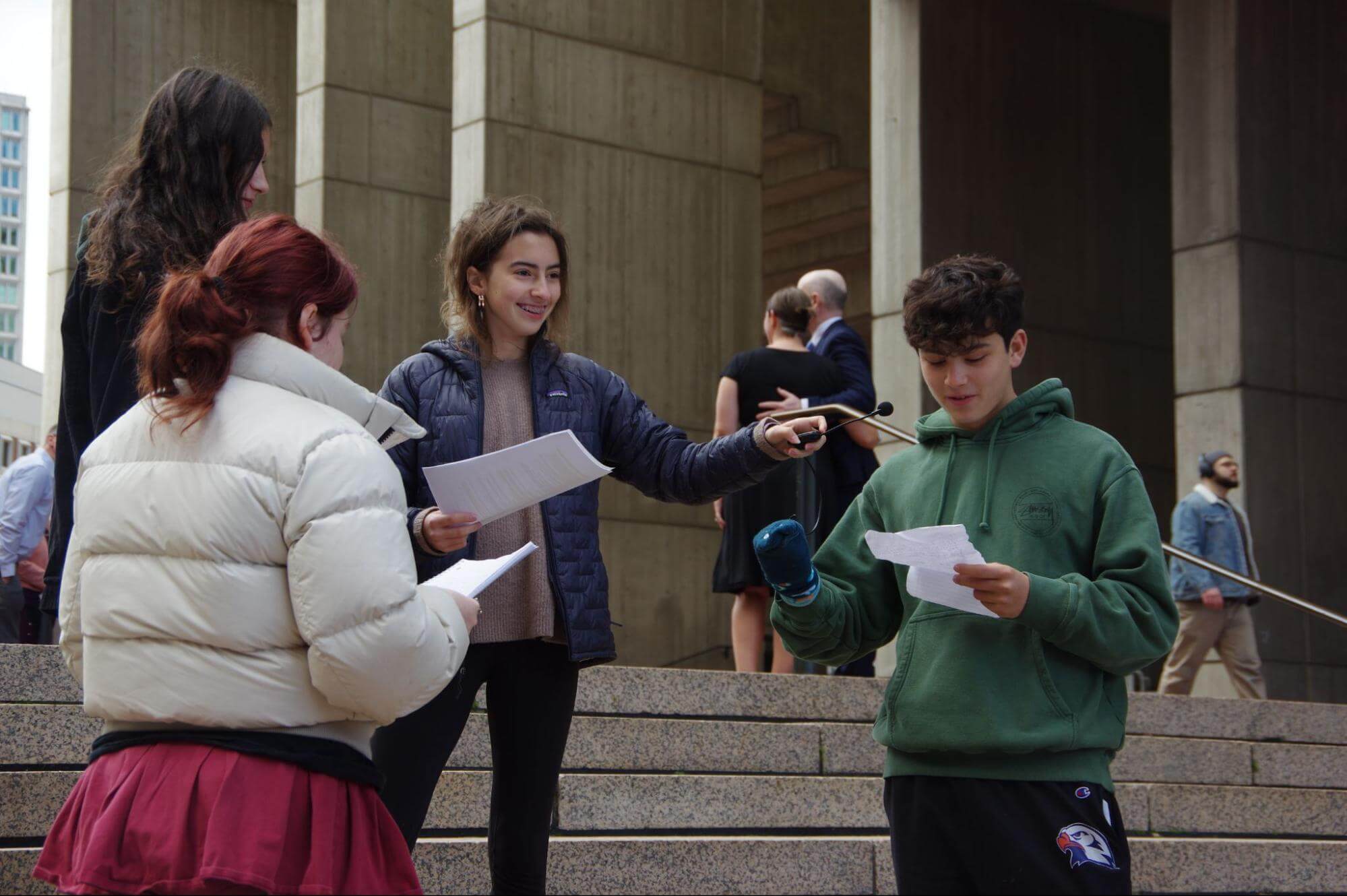
Fieldston Lower
As the leaves turn, Fieldston Lower 5th Graders prepare to head north to Outdoor Classroom on an overnight trip that combines hands-on learning, environmental education, and class bonding. This trip, like experiential learning across all four divisions, is made possible by student support networks — the parents, teachers, administrators, and nurses who support wellbeing to ensure a positive environment for learning.
The trip is a memorable milestone for 5th Graders — both a chance to connect as a class at the beginning of their final year at Fieldston Lower and a taste of the independence that they’ll continue to experience at Fieldston Middle. However, the inconsistent cell service that accompanies the picturesque views from the cabins proved to be a challenge when students with certain chronic health conditions needed to monitor symptoms overnight. Determined to provide an equitable experience for all ECFS students, this year the Tech and Health Offices teamed up for some ethics in action.
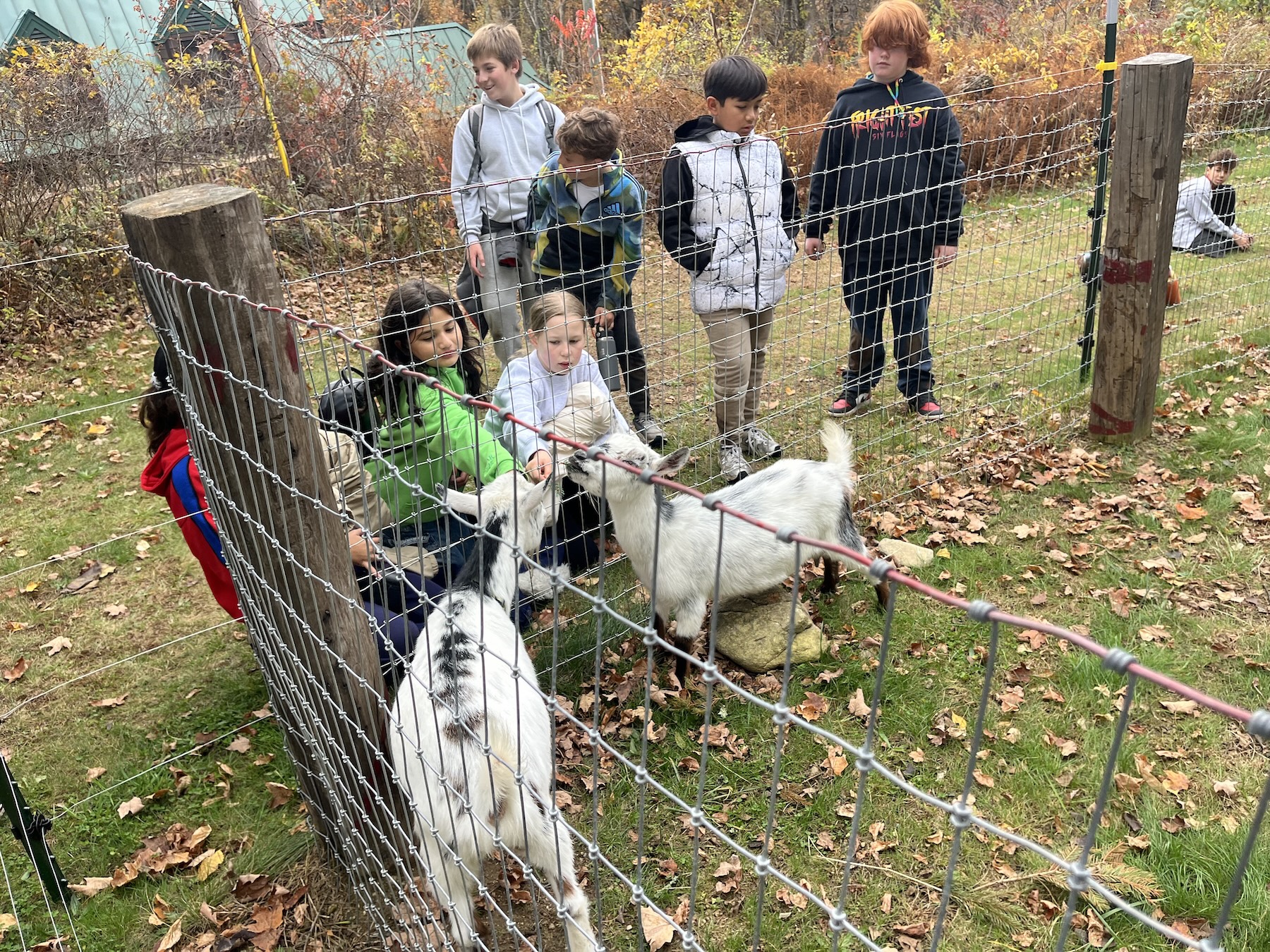

“The ECFS Tech Office generously provided additional WiFi equipment to ensure a seamless and equitable experience for all students during our stay,” explains Fieldston Lower Nurse Stacey Husted. “The equipment provided by ECFS ensured a reliable connection, so all students could spend the night in the cabins.”
While Fieldston Lower 5th Graders explore questions of identity, relationships, and responsibility in their Ethics classes, the adults in their support systems are bringing ethics to life, a reminder that ECFS’s mission extends to every member of our community. “‘Ability’ is an aspect of one’s identity,” remarks Husted, “and by providing medical care, training, and planning, school nurses ensure inclusivity for more vulnerable students. This is the epitome of caring for and creating a sense of belonging for the whole community.”
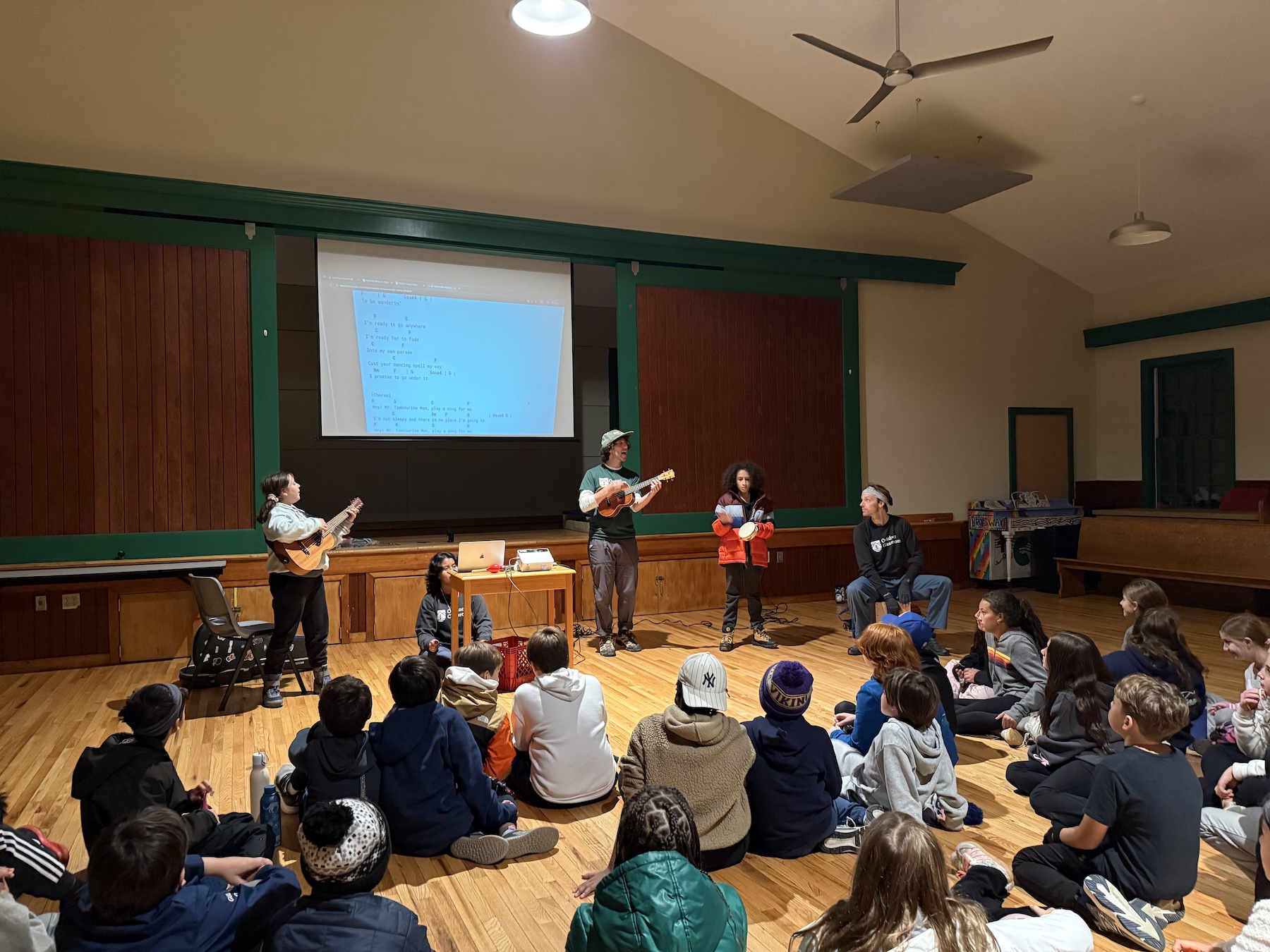
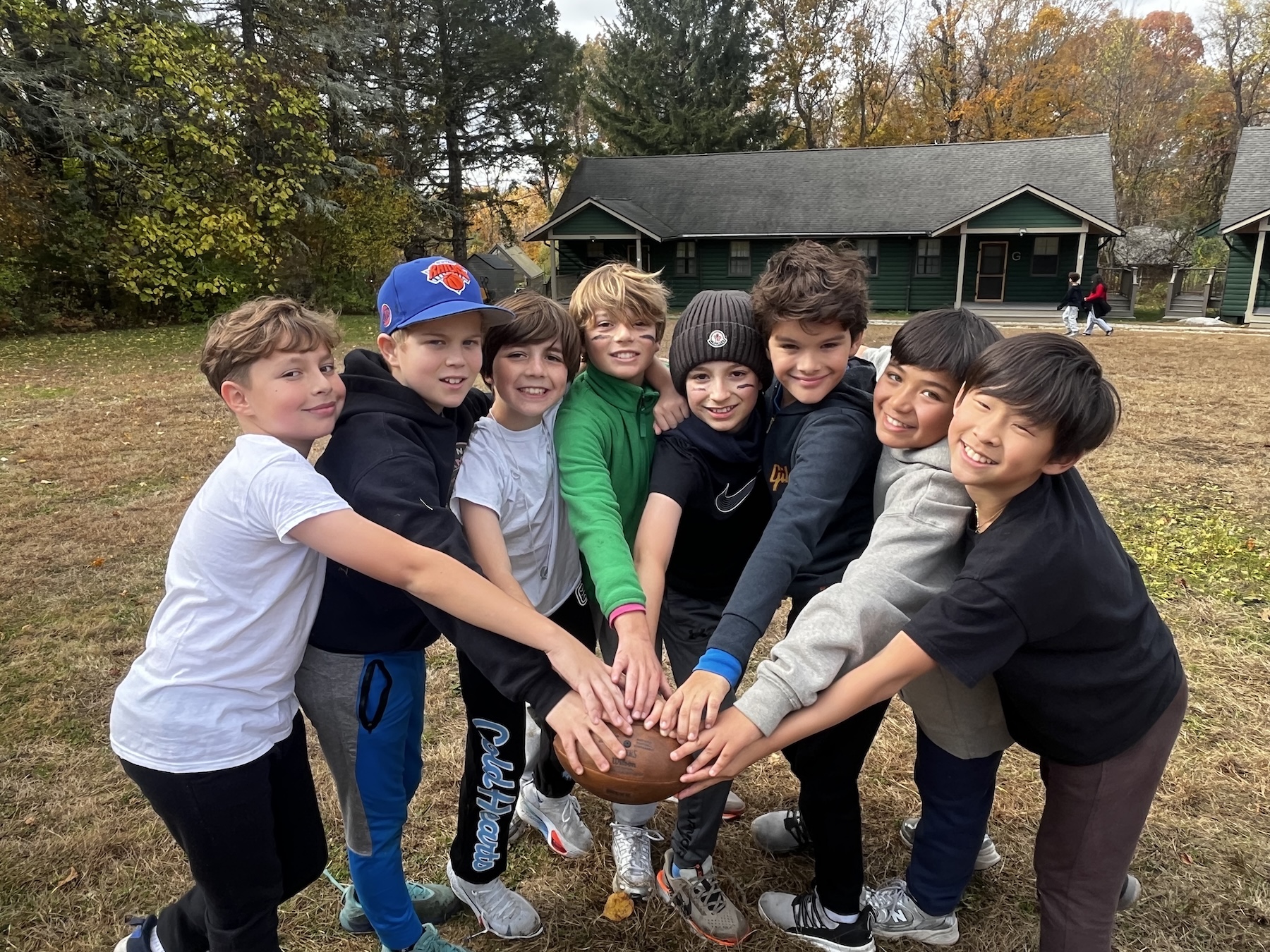
Supporting the school community involves everything from everyday student support, to communication with faculty, families, and administration, to larger initiatives, such as this year’s push to modernize the infrastructure at Outdoor Classroom.
With a secure WiFi connection established, every member of the 5th Grade class (plus their faculty chaperones) enjoyed three days of team building, nature walks, and cozying up in the cabins. Nurse Husted even got in on the adventure when the group was challenged to climb a mountain. “There was a ridge about 100 feet tall and quite vertical that we scaled by grabbing on to tree roots and tree trunks,” she says. “It was scary, but the whole group made it to the top. I felt very Rocky Balboa!”
